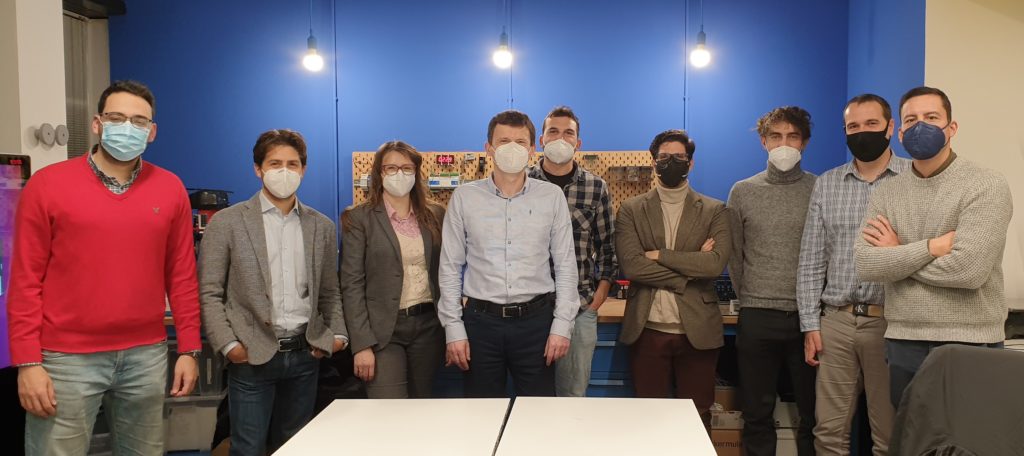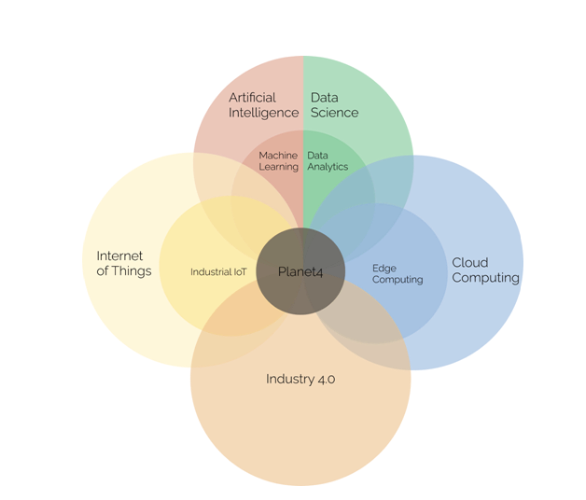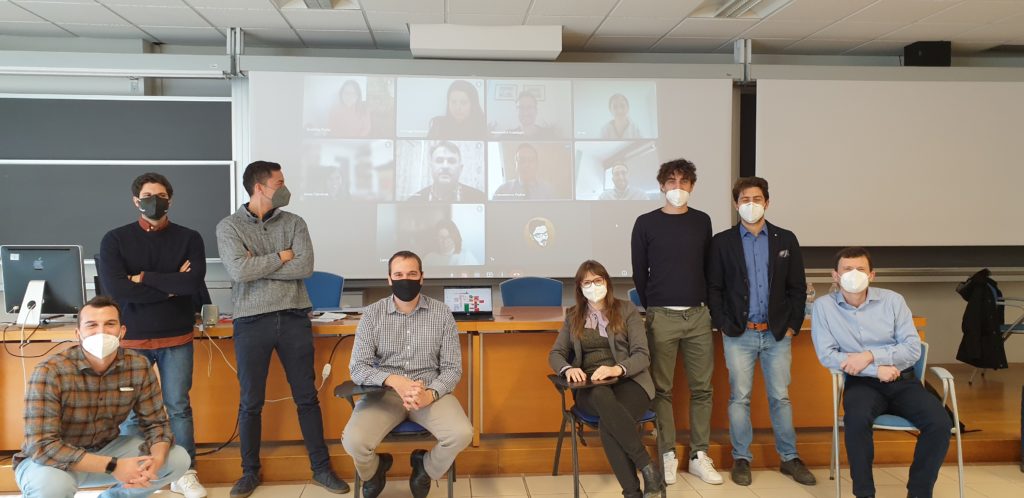The first meeting in the presence of the Planet4 project was held in Pisa on 14th and 15th December. UniPi hosted the partnership, made up of 11 partners from Italy, Poland, Greece, Germany, Romania, Lithuania and Spain, for an intense two days of work!
Unfortunately, because of the global pandemic that is still causing concern not all the consortium members could participate in person, but they followed the sessions online. The partners that attended virtually were ValueDo, Kaunas Science Techonolgy Park, OHS, Exquisite and University of Ioannina. While Politechnika Rzeszowska, University Ramon Llull, Zerynth and Elecnor were in Pisa, following the meeting with University of Pisa team from the Department of Informatics.

During the meeting UNIPI gave some updates on the interactive platform of the Taxonomy and presented the report on the evaluation of the I&CM course participants feedback. The partners took important decisions for the finalization of the I&CM40 course that will constitute the solid base for the creation of the e-learning course.
University of Ioannina presented the report on the evaluation of the Taxonomy provided by the external experts and Zerynth updated the partners on the collection of best practices (WP3).
UNIPI presented the PLANET4 training course overall framework. For the conceptual framework, Daniele suggests to merge Artificial Intelligence and Data Science and to include in the course the macro-area of Industry 4.0, as introduction module. The new topics agreed by the consortium of the course.

The second session consisted in the “Europe Café: brainstorming on PLANET4 topics and theoretical modules”.Europe Café represents a series of discussions taking place in a relaxed, dynamic and informal environment. Europe Café revolves around the goal to discuss and exchange thoughts, questions and ideas on various topics in relation to the PLANET4 e-learning course. This method ensures an effective and flexible format for hosting a series of discussions with a potentially large group of participants and can be modified to correspond to specific needs.As the meeting was in blended modality, instead of talking around a table, the participants worked on Miro Board, using virtual sticky notes and were divided into four groups.
The groups were the following:
- Group 1: Daniele M. (UNIPI), Karim (Zerynth), Juan Alfonso (ELCR);
- Group 2: Daniele A. (UNIPI), Chrysostomos (UOI), Liviu (EXQ);
- Group 3: Riccardo (UNIP), Lamprini (UOI), Joan (URL);
- Group 4: Dorota and Grzegorz (PRZ), Carl (OHS), Anna (URL).
Each group, in turn, participated at the tables of the PLANET4 café and discussed on a specific topic (they had at disposal 35 minutes per round: 10 minutes for self-brainstorming and 25 minutes for open discussion and clustering). The discussion was managed by a facilitator that, at the end of the process, briefly summarized the main insights come out from his/her table. Once a round of discussion was over, the participants were free to move to other tables.

The participants discussed the topics to be included in the specific lesson of the table, ideas on how to deliver the course, useful methodologies to be adopted and any other input for delivering the course.
The tables/boards and the correspondent facilitator were the following:
- Data Science, Artificial Intelligence and Machine Learning – Irma (KSP);
- Internet of Things and Industrial IoT – Giuditta (VALUE);
- Cloud Computing and Edge Computing – Roberto (UNIPI);
- Industry 4.0 – Alessandro (VALUE).
The next few months will be intense, but the partners are ready! The opportunity to meet in person only strengthened the mutual trust and the spirit of collaboration that has characterized the partnership since the first months of the project.
